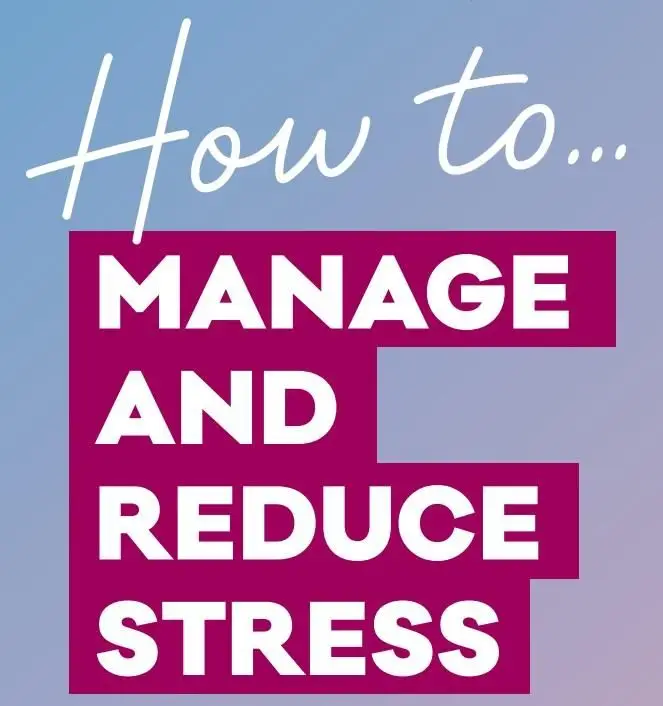What are the most effective methods for managing and reducing work-related stress in the healthcare industry?


Work-related stress is a common issue in the healthcare industry, with healthcare professionals often facing high-pressure situations and demanding workloads. Managing and reducing this stress is crucial for the well-being of healthcare workers and the quality of patient care. In this article, we will explore the most effective methods for managing and reducing work-related stress in the healthcare industry, focusing on stress management techniques, workplace wellness programs, and the importance of self-care.
Stress Management Techniques
One of the most effective ways to manage work-related stress in the healthcare industry is by implementing stress management techniques. These techniques can help healthcare professionals cope with the demands of their job and reduce the negative impact of stress on their physical and mental health. Here are some proven stress management techniques:
1. Time management: Effective time management can help healthcare professionals prioritize tasks, set realistic goals, and reduce feelings of overwhelm. Creating a schedule, setting boundaries, and delegating tasks can all contribute to better time management.
2. Mindfulness and meditation: Mindfulness and meditation practices have been shown to reduce stress and improve overall well-being. Taking a few minutes each day to practice deep breathing, meditation, or mindfulness exercises can help healthcare professionals relax and refocus.
3. Physical activity: Regular exercise is a powerful stress reducer. Engaging in physical activity, such as walking, jogging, or yoga, can help healthcare professionals release tension, boost mood, and improve overall health.
4. Social support: Building a strong support network is essential for managing work-related stress. Healthcare professionals can benefit from connecting with colleagues, joining support groups, or seeking professional counseling to share their experiences and receive emotional support.
Workplace Wellness Programs
Workplace wellness programs play a crucial role in managing and reducing work-related stress in the healthcare industry. These programs aim to create a healthy work environment, promote employee well-being, and prevent burnout. Here are some key components of effective workplace wellness programs:
1. Stress awareness and education: Providing healthcare professionals with information about stress, its causes, and its impact can help them better understand and manage their stress levels. Workshops, seminars, and educational materials can be valuable resources.
2. Work-life balance: Encouraging a healthy work-life balance is essential for reducing work-related stress. Employers can implement policies that promote flexible working hours, time off, and adequate breaks to ensure healthcare professionals have time to recharge and engage in activities outside of work.
3. Employee assistance programs: Employee assistance programs (EAPs) offer confidential counseling and support services to employees. EAPs can provide healthcare professionals with a safe space to discuss their stressors, receive guidance, and access resources for managing stress.
4. Wellness activities: Incorporating wellness activities into the workplace can help healthcare professionals relax and recharge. This can include offering yoga or meditation classes, organizing team-building activities, or providing access to on-site fitness facilities.
The Importance of Self-Care
In addition to stress management techniques and workplace wellness programs, self-care is crucial for managing and reducing work-related stress in the healthcare industry. Healthcare professionals often prioritize the well-being of others over their own, leading to burnout and increased stress levels. Here are some self-care practices that can help healthcare professionals prioritize their own well-being:
1. Prioritizing rest and sleep: Getting enough rest and quality sleep is essential for managing stress. Healthcare professionals should prioritize their sleep schedule, create a relaxing bedtime routine, and ensure they have time for rest and recovery.
2. Healthy eating habits: Proper nutrition plays a significant role in managing stress. Healthcare professionals should aim to eat a balanced diet, stay hydrated, and avoid excessive caffeine or sugary foods that can contribute to energy crashes and mood swings.
3. Hobbies and leisure activities: Engaging in hobbies and leisure activities outside of work can help healthcare professionals relax and recharge. Whether it’s reading, painting, gardening, or playing a musical instrument, finding activities that bring joy and fulfillment is essential for stress reduction.
4. Setting boundaries: Learning to set boundaries is crucial for managing work-related stress. Healthcare professionals should establish clear boundaries between work and personal life, learn to say no when necessary, and prioritize their own needs and well-being.
In conclusion, managing and reducing work-related stress in the healthcare industry is essential for the overall well-being of healthcare professionals and the quality of patient care. By implementing stress management techniques, workplace wellness programs, and prioritizing self-care, healthcare professionals can effectively manage their stress levels and create a healthier work environment. It is crucial for healthcare organizations to prioritize the well-being of their employees and provide the necessary resources and support to ensure a stress-free and fulfilling work experience.
Recent Posts
How do I create an engaging and informative online quiz or assessment?
Creating an engaging and informative online quiz or assessment can be a powerful tool for… Read More
What are the most effective methods for managing and reducing work-related stress in the hospitality industry?
Work-related stress is a common issue in the hospitality industry, where employees often face long… Read More
How can I improve my assertiveness and communication skills in a leadership position?
In a leadership position, assertiveness and effective communication skills are crucial for success. Being able… Read More
What are the key elements of a successful employee recognition and rewards program?
Employee recognition and rewards programs play a crucial role in motivating and engaging employees, as… Read More
How do I effectively manage and respond to customer feedback and reviews?
Customer feedback and online reviews play a crucial role in shaping a company's reputation and… Read More
What are the best strategies for effective time management as a stay-at-home parent?
Effective time management is crucial for stay-at-home parents who juggle multiple responsibilities on a daily… Read More